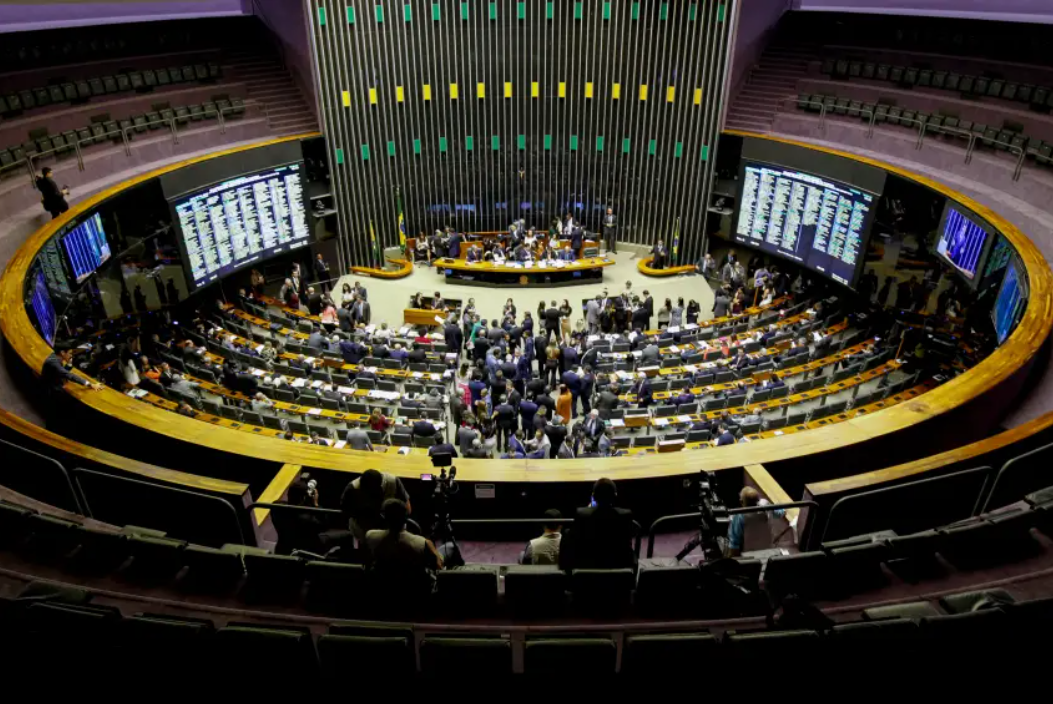Brazil: Evangelical Front President Stands Against Land-Based Casinos

Brazil.- April 15, 2025 www.zonadeazar.com Despite lawmakers’ expectations for the approval, still this semester, of Bill No. 2,234/2022, which regulates the operation of games in establishments such as physical casinos, bingos, and horse race betting, the Evangelical caucus is clearly unhappy with the bill’s progress.
The president of the Evangelical Parliamentary Front, Congressman Gilberto Nascimento (PSD-SP), was categorical in stating that he wants to mobilize fellow lawmakers against the legalization of gambling in Brazil.
According to Nascimento, promoting new forms of gambling would only worsen the situation, saying, “just look at the impact of online betting. Now they want to bring in physical casinos,” he stated in an interview with Poder360.
Besides the Evangelical caucus, the government leader in the Senate, Jaques Wagner (PT-BA), remarked that the current political climate does not favor discussions about land-based casinos.
“With all the negative fallout around online betting, there’s no political environment to vote on this right now. It’s not a priority for this semester,” Wagner said on Wednesday, April 9.
Land-Based Casinos in Brazil
Bill No. 2,234/2022, which regulates gaming in physical establishments, was approved by the Constitution and Justice Commission (CCJ) in December 2023 and is expected to be voted on in the Senate plenary by July 2025, according to an optimistic forecast by Tourism Minister Celso Sabino.
“We believe the casino bill will be approved by the Senate by July. It’s an important agenda to boost tourism and job creation,” said Sabino, emphasizing that the sector could represent a new cycle of economic growth.
The proposal allows for the installation of casinos in integrated leisure complexes, such as resorts, luxury hotels, and entertainment centers. It also authorizes the reopening of bingos and regulates the traditional “jogo do bicho.” The text, drafted by Senator Irajá Abreu (PSD-TO), establishes strict criteria for license approval: interested companies must have a minimum capital of R$ 100 million and present a detailed operational plan. Licenses would be valid for 30 years, renewable for another 30.
Irajá claims the measure could generate more than 1.5 million direct and indirect jobs, in addition to raising up to R$ 22 billion in taxes per year. He also argues that legalization would allow the State to control and oversee a sector currently dominated by illegal operations.
“Gambling already exists in Brazil today, but it’s in the hands of crime. Regulation would take this activity out of the shadows, protect consumers, and generate revenue for the country,” the senator said.
Part of the Evangelical caucus in Congress, including Gilberto Nascimento, remains opposed to the bill, claiming that gambling could fuel addiction, money laundering, and family disintegration. Nevertheless, the proposal already has strong backing from the tourism parliamentary front and the explicit interest of major international operators.
Companies like MGM Resorts and Caesars Palace have been closely monitoring the bill’s developments and have expressed interest in investing in Brazil if the market is legalized. According to industry executives, Brazil has the potential to become one of the world’s top gambling tourism destinations, thanks to its cultural diversity and natural beauty.
Beyond the economic benefits, supporters of the proposal highlight its positive impact on tourism. Brazil, which already attracts over 6 million international tourists per year, could significantly increase that number with the development of resort casinos in places like Rio de Janeiro, Foz do Iguaçu, Manaus, and the northeastern coast.
The hospitality and hotel sectors are also enthusiastic. According to Alexandre Sampaio of the National Tourism Confederation, the measure could “revitalize entire regional economies and attract investments currently directed to other Latin American countries.”
The next step will be the vote in the Senate plenary. If approved, the bill will proceed to presidential sanction.
Editó: @_fonta www.zonadeazar.com